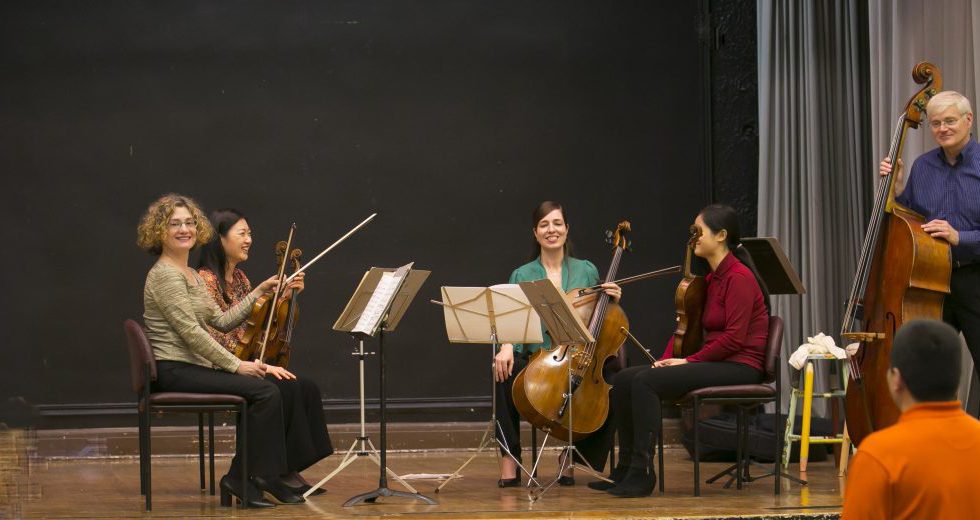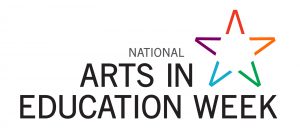
The Chicago Symphony Orchestra and orchestras nationwide are proud to celebrate National Arts in Education Week! We are committed partners with local school systems and advocates for the importance of in-school music education. The following is a statement from The League of American Orchestras:
Statement of Common Cause: Orchestras Support In-School Music Education
America’s adult and youth orchestras are committed to advocating for better music education in our nation’s schools. Educational activities in orchestras have grown exponentially over the past 10 to 15 years. Starting from the tradition of stand-alone school-day and family concerts, orchestras now offer small ensemble performances, residencies and long-term partnerships, after-school and summer camps, instrumental instruction, early childhood and teen programs, and a host of other activities. Additionally, there are now nearly 500 youth orchestras in communities across the country. Orchestra programs strive for deeply embedded partnerships with local school systems, and responsiveness to local, state and national arts and academic standards.
While these programs provide an opportunity for young people to develop a lifelong relationship with music and with the orchestra, these programs are not capable of replacing a standards-based K-12 music education.
Research has proven that arts education uniquely provides academic and social benefits, preparing students for success in school, work and life. The status of music education in our nation’s schools has short- and long-term consequences for both student achievement and the future of all our orchestras. America’s orchestras are committed to: Advocating for In-School Music Education
Orchestras believe:
- A child’s education is not complete unless it includes the arts. The arts are a core subject of learning, and music is vital to maximizing a child’s full potential. Ensemble music-making in schools is an important part of a complete music education.
- Schools are in a unique position to deliver comprehensive, high-quality, systemic music education to all students. Orchestras will serve as a resource in this effort.

- The needs of students should be at the center of education advocacy efforts. Orchestras’ education programs are most effective when developed to address the needs of student learners, in partnership with the school leaders (teachers, administrators, parents), local arts organizations and other stakeholders.
Orchestras commit to:
- Understanding the status of in-school music education and advocating for accurate data and accountability about how much and what kind of music instruction students receive.
- Discovering, implementing and sharing best practices in advocacy for comprehensive, high-quality in-school music education through sustainable partnerships with all advocates in the community.
- Understanding how orchestra resources and strengths can best address student, school and community needs.
Orchestras seek to improve the status of in-school music education by:
- Ensuring music education advocacy is a role for everyone in the orchestra family — staff, musicians, trustees, volunteers and our audiences.
- Advocating for policies that support the presence of in-school music educators and demonstrably improve access to high-quality music education for all students.
- Pro-actively forming sustainable advocacy relationships with school partners, policy leaders and community stakeholders to secure the success of every child’s music education.
- Participating in forums where local, state and national education policies are determined by listening to community needs and communicating the benefits of systemic K-12 music education.
TOP: A chamber ensemble of CSO musicians perform for students at Louise Pasteur Elementary School. © Todd Rosenberg Photography